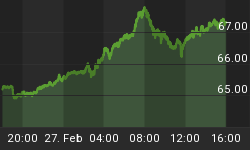Samsung will soon draw 100% of its electricity needs from renewable energy sources across all its sites in the United States, Europe, and China, the Korea-based global electronics manufacturing giant announced on Thursday.
The plan, which is expected to see the transition complete by 2020, will support the local government's national strategic plan to increase the country's renewable energy use by 20 percent by 2030.
As part of this commitment, the company will install about 63,000 square meters of solar panels in its campuses in South Korea. Samsung is also installing 42,000 square meters of solar panels in its Digital City and is working on generating geothermal power at its Pyeongtaek and Hwaseong campuses by 2020.
"Samsung Electronics is fulfilling its duty as a corporate citizen by expanding and supporting the use of renewable energy," said Won Kyong Kim, Samsung Electronics' executive vice president and head of global public affairs. Related: Nasdaq Pulls Back After Hitting A Record High
This move was welcomed by environmental organizations, who called on Samsung to set a renewable energy goal for its operations and its supply chain. “Samsung's announcement is a major step forward for the movement to build a renewably powered future," said Jennifer Morgan, Greenpeace International's executive director.
While Samsung is the first electronics manufacturing company in Asia to set a renewable energy target, it is still lagging behind its peers, including Apple, which says its global facilities are now powered by 100 percent clean energy. Google, as another example, is offsetting all of its operational energy through wind and solar, and Amazon Wind Farm Texas adds over 1 million megawatt hours of clean energy to the grid annually.
Samsung is also planning to work with its top 100 partner companies to assist them in setting their own renewable energy targets, in partnership with the CDP's (formerly the Carbon Disclosure Project) supply chain program, which the company intends to join next year.
By Michael Scott for Safehaven.com
More Top Reads From Oilprice.com:
















